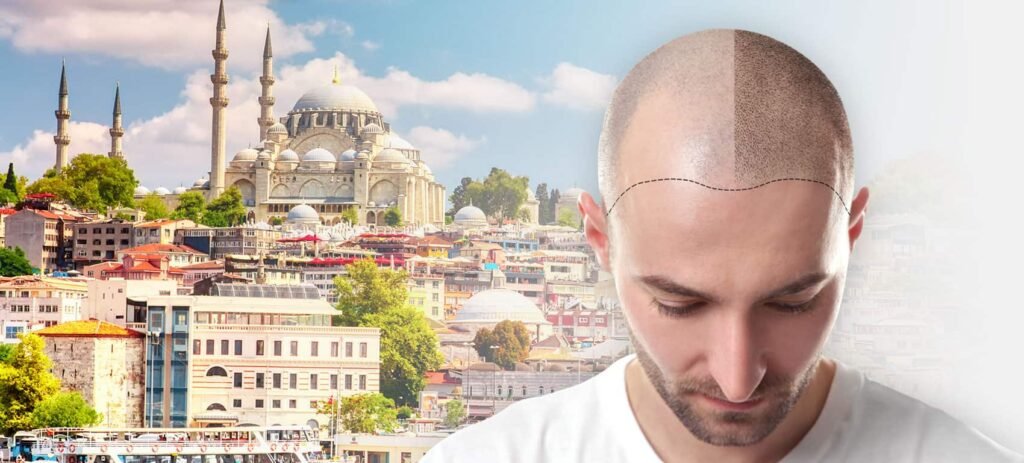Introduction
Over the past decade, Turkey has become the world’s hair transplant capital, attracting hundreds of thousands of men and women every year. The country’s promise of high-quality procedures at affordable prices has transformed it into a global hub for medical tourism. Yet behind this booming industry lies a growing concern — the rising number of medical malpractice Turkey cases related to hair transplants.
What begins as a trip to restore confidence can end in permanent scarring, infections, or unnatural results. Understanding these hidden risks and how to protect yourself is crucial for anyone considering hair restoration in Turkey.
Why Hair Transplant Tourism Is Booming
Turkey’s rise in medical tourism is no coincidence. Affordable procedures, short waiting times, and experienced surgeons have positioned Istanbul and Antalya as key destinations for patients from the UK, Europe, and the Middle East. A complete hair transplant that costs $10,000 in London can often be done for under $2,000 in Turkey, making it an attractive option for those seeking quick results.
However, this rapid growth has also led to unregulated clinics, overworked staff, and inexperienced practitioners trying to capitalize on demand. The combination of price competition and minimal oversight has created an environment ripe for medical malpractice Turkey incidents.
The Hidden Risks Behind Low-Cost Procedures
The most common cause of hair transplant malpractice in Turkey is unlicensed operations. Many clinics advertise under reputable names but delegate surgeries to unqualified technicians rather than certified doctors. Patients often realize this only when complications arise.
Common malpractice-related issues include:
- Infections caused by non-sterile surgical environments.
- Permanent scarring from improper extraction or implantation techniques.
- Uneven or patchy results due to poor graft handling.
- Nerve damage leading to chronic numbness or pain.
When performed correctly, a hair transplant can deliver natural, lasting results. But when handled by untrained staff, it can result in both physical and emotional trauma — grounds for a medical malpractice Turkey claim.
Language and Communication Gaps
Many international patients arrive in Turkey expecting English-speaking medical teams. Unfortunately, some clinics rely on poorly trained translators or none at all. Misunderstandings during consultations can lead to incorrect expectations or procedures being performed differently from what was agreed upon.
When communication errors cause harm, it strengthens the basis of a malpractice case. Learn more in How Translation Errors Lead to Medical Malpractice Turkey.
Informed Consent: Often Overlooked
A cornerstone of ethical medicine is informed consent — the process of explaining all risks, alternatives, and expected outcomes before surgery. Yet in many clinics, consent forms are rushed, untranslated, or overly simplified. Patients may sign documents they do not fully understand, believing the risks are minimal.
When a clinic fails to inform patients properly, it violates Turkish medical law and can be held accountable under medical malpractice Turkey regulations. For more details, read How Informed Consent Works in Turkish Medical Procedures.
Signs You May Have Experienced Malpractice
After a hair transplant, certain complications should raise immediate red flags for malpractice. Persistent infections, delayed healing, or unnatural results are often the first warning signs. Some patients report large visible scars, excessive hair loss after a few months, or asymmetrical growth patterns — indicators of poor surgical technique or negligence.
Psychological distress is also a valid form of harm. Patients who experience depression or loss of confidence due to failed transplants may include emotional suffering in their legal claims. See Psychological Impact of Medical Malpractice in Turkey: Coping and Legal Support for more on emotional recovery and compensation.
Legal Rights of Foreign Patients in Turkey
Foreign patients harmed by malpractice have the same legal rights as Turkish citizens. They can file a lawsuit seeking compensation for:
- Medical expenses for corrective procedures.
- Pain and suffering due to negligence.
- Loss of income from recovery or revision surgeries.
- Long-term psychological harm.
However, navigating Turkish law can be complex, especially from abroad. Partnering with a law firm specializing in medical malpractice Turkey, such as Oran Partners, ensures that your evidence, expert reports, and communication with courts are handled efficiently and professionally.
To learn more about the claim process, visit Filing a Medical Malpractice Lawsuit in Turkey.
Why Many Victims Don’t Report Malpractice
Despite the surge in cases, many victims of botched hair transplants never pursue legal action. Reasons include embarrassment, lack of awareness about their rights, or the misconception that lawsuits in Turkey are inaccessible to foreigners. In reality, most malpractice claims can be initiated remotely with proper documentation and expert evaluation.
Legal professionals can also request certified translations of medical records and appoint medical experts to assess whether malpractice occurred. This process strengthens the case without requiring the patient’s constant presence in Turkey.
How to Protect Yourself Before Surgery
While not all clinics are unsafe, patients must exercise due diligence before choosing a provider. Researching certifications, checking surgeon credentials, and confirming the clinic’s licensing status are essential. Avoid packages that combine surgery with tourist accommodations or “all-inclusive deals” that prioritize convenience over safety.
Patients should also:
- Request written confirmation that the surgeon, not a technician, will operate.
- Ask for official clinic registration numbers.
- Read independent reviews, not just testimonials on the clinic’s website.
- Ensure aftercare plans are clearly explained and translated.
If something feels rushed or unclear, walk away. Preventing medical malpractice Turkey begins with informed decision-making.
The Role of Legal and Medical Experts
Proving malpractice requires demonstrating that the clinic breached its duty of care and that this directly caused harm. Legal experts collaborate with medical professionals to analyze surgical techniques, review photographic evidence, and evaluate aftercare negligence.
At Oran Partners, specialized attorneys handle every stage of this process — from evidence collection to expert consultation — ensuring that victims receive fair compensation and accountability.
For a detailed explanation of negligence evaluation, see How to Prove Negligence in a Medical Malpractice Case in Turkey.
Conclusion
Turkey’s reputation as a global hub for hair transplants is well-earned — but the rapid expansion of the industry has also created conditions where medical malpractice Turkey is alarmingly common. Behind the glossy advertisements and low-cost offers, many patients face hidden risks, including unqualified practitioners, poor hygiene, and a lack of informed consent.
If you’ve suffered harm from a botched hair transplant, you have the legal right to seek justice and compensation. With expert representation from Oran Partners, patients can hold negligent clinics accountable and restore not only their appearance but also their confidence and peace of mind.













